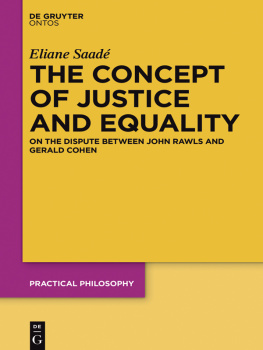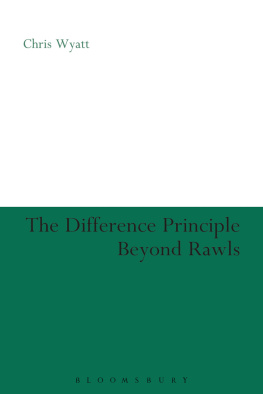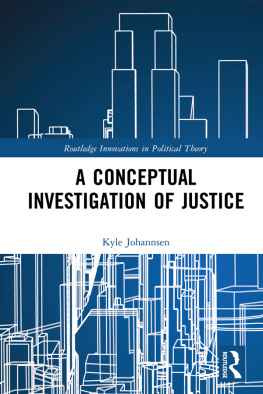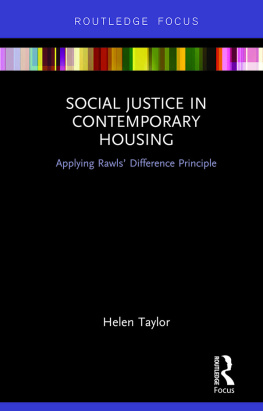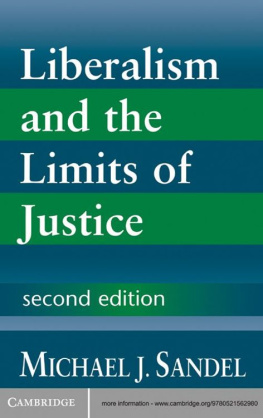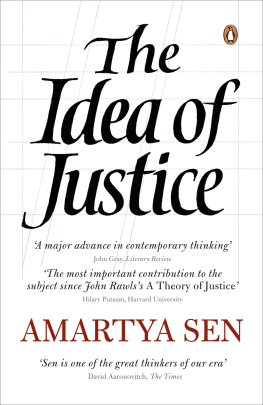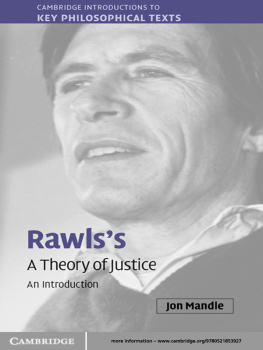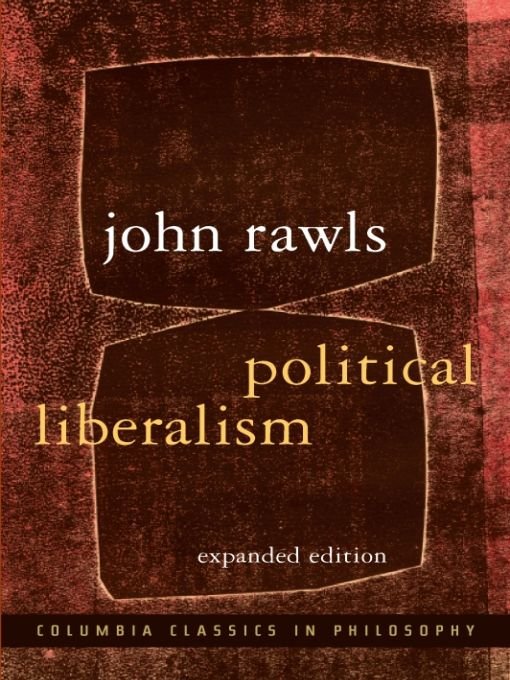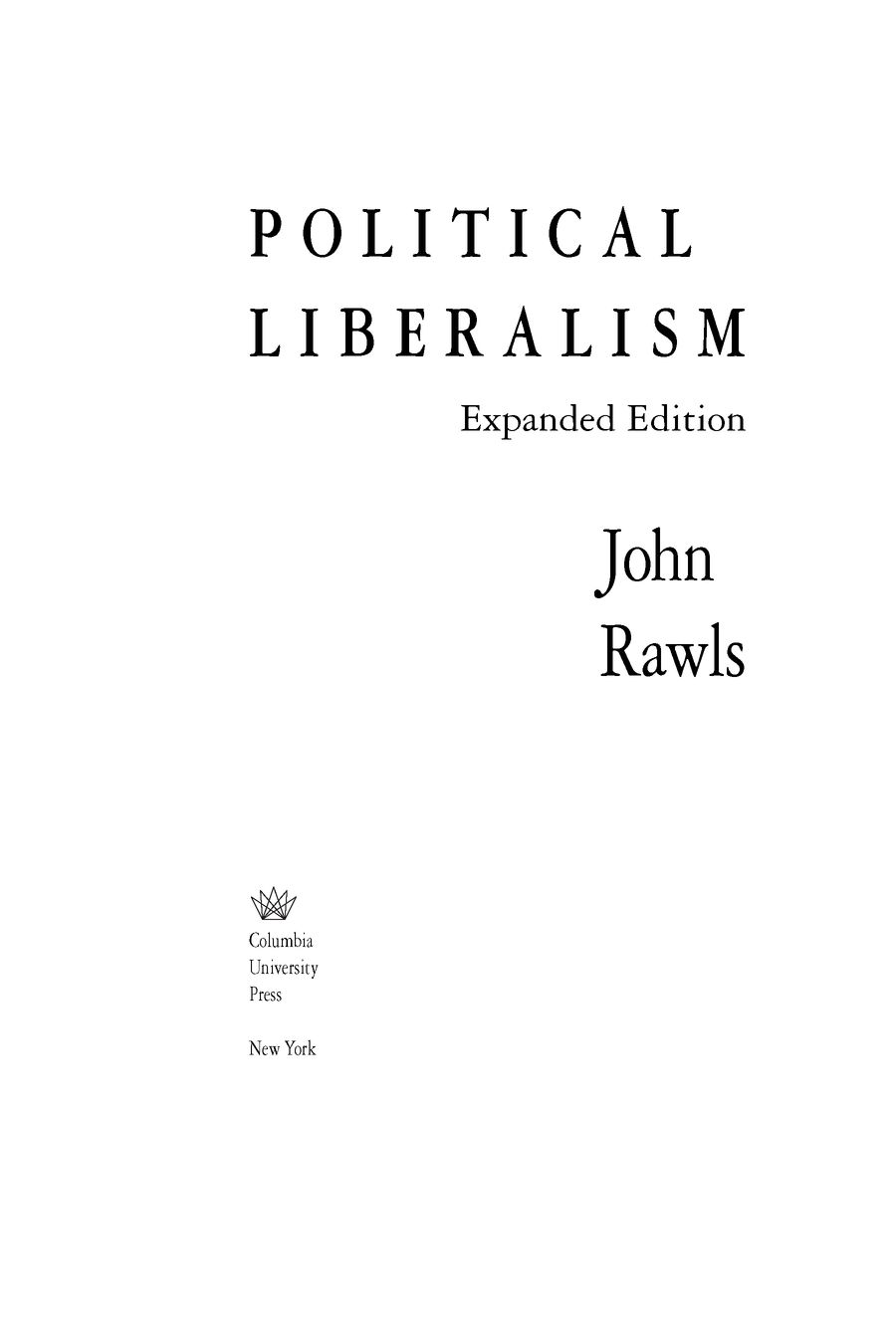Table of Contents
Columbia Classics in Philosophy
Columbia Classics in Philosophy celebrates the longstanding tradition of publishing novel and influential works in philosophy.
Arthur C. Danto, The Philosophical Disenfranchisement of Art , with a foreword by Jonathan Gilmore
Arthur C. Danto, Nietzsche as Philosopher:Expanded Edition
Noam Chomsky, Rules and Representations, with a foreword by Norbert Hornstein
For
Anne,
Lee,
Alec,
and
Liz
Introduction
The contents of this work are as follows. The first three lectures more or less cover the ground of three lectures I gave at Columbia University in April of 1980 and which appeared considerably revised in the Journal of Philosophy in September of that year under the title Kantian Constructivism in Moral Theory. In the more than ten years since they have again been recast and further revised. I think they are much clearer than before, which is not to say they are now clear. I continue to call lectures what might be called chapters, since they were all given as lectures and I try to preserve, perhaps unsuccessfully, a certain conversational style.
When the original lectures were given I planned to publish them with three additional lectures. One, Basic Structure as Subject (1978), was already given and in print, the other two, Basic Liberties and Their Priority (1982) and Social Unity and Primary Goods (1982), were either drafted or near completion. But when these three additional lectures were finally done, they lacked the kind of unity I wanted, either with themselves or with the three preceding lectures. as I now refer to it, beginning with Political not Metaphysical (1985), much of which is included in the first lecture, followed by Overlapping Consensus (1987), Ideas of the Good (1988), and Domain of the Political (1989). The last three, considerably redone and combined, together with Public Reason, which appears here for the first time, make up the second three lectures.
The first six lectures are related this way: the first three set out the general philosophical background of political liberalism in practical reason, especially 1, 3, 7, 8 of II and all of III, while the second three lay out in more detail several of its main ideas: the idea of an overlapping consensus, the idea of the priority of right and its relation to ideas of the good, and the idea of public reason. The lectures now have the desired unity both among themselves and with the spirit and content of A Theory of Justice, a unity given by their topic: the idea of political liberalism.
To explain this last remark: the aims of A Theory of Justice were outlined in its preface (paragraphs 23). To paraphrase, I began by noting that during much of the modern period of moral philosophy the predominant systematic view in the English-speaking world had been some form of utilitarianism. One reason for this was that it had been represented by a long line of brilliant writers, from Hume and Adam Smith to Edgeworth and Sidgwick, who built up a body of thought truly impressive in its scope and depth. Those who criticized it often did so on a narrow front. They noted difficulties with the principle of utility and pointed out serious apparent discrepancies between its implications and our ordinary moral convictions. Yet I thought these critics failed to elaborate a workable and systematic moral conception that could successfully oppose it. The outcome was that we were often forced to choose between utilitarianism and rational intuitionism and were likely to settle for a variant of the principle of utility circumscribed and restricted by seemingly ad hoc intuitionistic constraints.
The aims of Theory (still to paraphrase) were to generalize and carry to a higher order of abstraction the traditional doctrine of the social contract. I wanted to show that this doctrine was not open to the more obvious objections often thought fatal to it. I hoped to work out more clearly the chief structural features of this conceptionwhich I called justice as fairnessand to develop it as an alternative systematic account of justice that is superior to utilitarianism. I thought this alternative conception was, of the traditional moral conceptions, the best approximation to our considered convictions of justice and constituted the most appropriate basis for the institutions of a democratic society.
The aims of these lectures are quite different. Note that in my summary of the aims of Theory, the social contract tradition is seen as part of moral philosophy and no distinction is drawn between moral and political philosophy. In Theory a moral doctrine of justice general in scope is not distinguished from a strictly political conception of justice. Nothing is made of the contrast between comprehensive philosophical and moral doctrines and conceptions limited to the domain of the political. In the lectures in this volume, however, these distinctions and related ideas are fundamental.
Indeed, it may seem that the aim and content of these lectures mark a major change from those of Theory. Certainly, as I have indicated, there are important differences. But to understand the nature and extent of the differences, one must see them as arising from trying to resolve a serious problem internal to justice as fairness, namely from the fact that the account of stability in part III of Theory is not consistent with the view as a whole. I believe all differences are consequences of removing that inconsistency. Otherwise these lectures take the structure and content of Theory to remain substantially the same.
To explain: the serious problem I have in mind concerns the unrealistic idea of a well-ordered society as it appears in Theory. An essential feature of a well-ordered society associated with justice as fairness is that all its citizens endorse this conception on the basis of what I now call a comprehensive philosophical doctrine. They accept, as rooted in this doctrine, its two principles of justice. Similarly, in the well-ordered society associated with utilitarianism citizens generally endorse that view as a comprehensive philosophical doctrine and they accept the principle of utility on that basis. Although the distinction between a political conception of justice and a comprehensive philosophical doctrine is not discussed in Theory, once the question is raised, it is clear, I think, that the text regards justice as fairness and utilitarianism as comprehensive, or partially comprehensive, doctrines.
Now the serious problem is this. A modern democratic society is characterized not simply by a pluralism of comprehensive religious, philosophical, and moral doctrines but by a pluralism of incompatible yet reasonable comprehensive doctrines. No one of these doctrines is affirmed by citizens generally. Nor should one expect that in the foreseeable future one of them, or some other reasonable doctrine, will ever be affirmed by all, or nearly all, citizens. Political liberalism assumes that, for political purposes, a plurality of reasonable yet incompatible comprehensive doctrines is the normal result of the exercise of human reason within the framework of the free institutions of a constitutional democratic regime. Political liberalism also supposes that a reasonable comprehensive doctrine does not reject the essentials of a democratic regime. Of course, a society may also contain unreasonable and irrational, and even mad, comprehensive doctrines. In their case the problem is to contain them so that they do not undermine the unity and justice of society.








